Ivorian Activists, Opposition Face Restrictions Ahead Of 2020 Presidential Polls
Ahead of Ivory Coast’s critical 2020 presidential elections, civil society groups are being prevented from protesting for changes they believe would lead to fairer elections and improved living conditions.
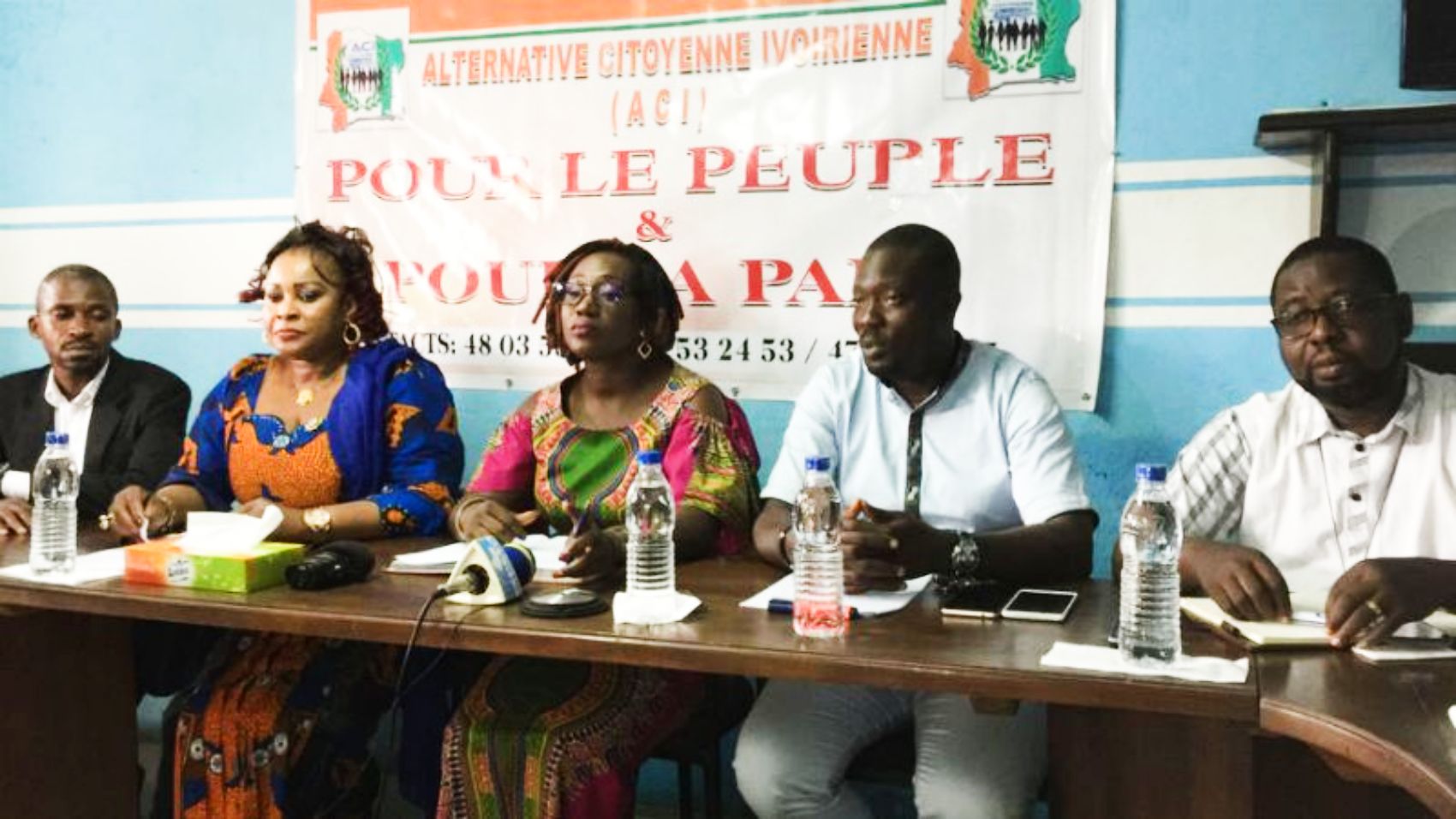
Célestine Olibé (L), Pulchérie Edith Gbalet (C), and David Samba (R) at ACI/FORSCI press conference on July 13, 2019. Photo: Frank Hersey | FRANCE 24
Ahead of Ivory Coast’s critical 2020 presidential elections, civil society groups are being prevented from protesting for changes they believe would lead to fairer elections and improved living conditions.
On July 23, just 15 months ahead of the 2020 presidential elections set for October 31, Ivory Coast's Independent Electoral Commission (CEI) granted a group of civil society activists an audience, much to their surprise.
The five members, including David Samba, coordinator of the Coalition of Indignant Ivorians (CICI), accompanied by a journalist, made their way to the commission HQ in Abidjan, Ivory Coast’s de facto capital, at the agreed time to discuss the commission’s reform and the groups’ hope to stage a sit-in protest outside. But at the entrance, the five activists and Le Temps journalist Marcel Dezogno were arrested.
“As soon as they arrived at the CEI, they were arrested and it was the Assistant Coordinator of the CICI, Nahounou Daleba, who had time to inform me before their mobile phones were taken from them,” Pulchérie Edith Gbalet, president of the Alternative Citoyenne Ivoirienne (ACI), told FRANCE 24. Two members of her group were among the five. “They were roughed up before being loaded onto a truck and taken to the Police Prefecture. They even refused to let David Samba make a phone call before leaving.”
It was the day civil society groups had originally intended to hold the sit-in, but they held off, this time after discussions with the National Council on Human Rights (CNDH) and the secretary of state for human rights. All previous attempts to obtain permission from the authorities had failed, typically with no response at all from the State.
“We informed all the authorities of Ivory Coast, that is the Ministry of the Interior, the Prefect of Abidjan, the Police Prefect,” said David Samba, real name Douyou Nicaise, at a press conference ten days before the planned sit-in at the CEI for July 23. They have no response except the CEI’s invitation. According to a source in the judiciary, not responding to requests to protest is illegal, as is not giving motives behind a decision to deny a protest. The activists were released almost 36 hours later.
Shadow of 2010-2011 post-electoral violence
This collective of civil society groups is not the only one being prevented from lawful protest in Ivory Coast and their members are not the only ones being arrested. Since the start of 2019, there have been 14 arrests of activists and opposition members, according to Amnesty International.
Arrested late last year after live-streaming what he claimed was police corruption, online activist Carton Noir, real name Soro Tangboho, has also seen his one-year sentence doubled in a retrial while in prison. Pulchérie Edith Gbalet told FRANCE 24 that even a press conference in a private building planned for 29 June had been prevented.
The areas of hoped-for protest cover corruption, the fees for replacing national identity cards and the reform of the electoral commission. Ivory Coast is just over a year away from its next presidential elections and the perceived independence of the electoral commission is considered vital for ensuring peaceful elections.
After the post-electoral crisis that followed the 2010 presidential election, where the two leading contenders each claimed victory, leading to atrocities on both sides which resulted in over 3,000 deaths, the country began reconciliation efforts. The 2015 elections passed almost without bloodshed due to political alliances, then in 2016 the African Union’s African Court on Human and People’s Rights ruled that the commission be reformed to be balanced and impartial.
Election commission ‘cannot claim to be independent’
In January 2019, President Alassane Ouattara charged Prime Minister Amadou Gon Coulibaly with reforming the central committee of the CEI. The proposed changes would see the board reduced from 17 to 15 members with a shift to include a member of more civil society and human rights representation.
However, civil society groups claim that the new appointees plus remaining members such as a representative of the national judiciary will still be under the control of the government, meaning that the commission is in no way independent.
“In our opinion, the commission does not conform with the judgement of the African Court on Human and People’s Rights. It cannot claim to be independent,” Abraham Denis Yaurobat, of the Advocacy and Action Group for Electoral Transparency, (GPATE) told FRANCE 24.
The government refutes these claims.
Kobénan Kouassi Adjoumani, the spokesperson for the ruling RHDP party, told FRANCE 24 that “Representatives of the High Council of the Judiciary, they’re independent because Article 139 of our Constitution consecrates the independence of the judiciary and that also of the National Council on Human Rights... The CEI is going to see real improvement today with the new configuration. Opponents would be better off going out and fighting their campaigns.”
‘File is closed,’ says Ouattara
The day before the arrests at the CEI, July 22, Ouattara claimed a consensus for the draft bill. On July 31, the CEI reform bill was passed by the National Assembly by 124 votes to 78, with opposition members claiming it favours the ruling RHDP coalition. It was adopted August 5 and our source in the judiciary explained that once adopted, the government will have to present its reforms to the African Court on Human and People’s Rights who in turn will present it to the African Union. The court can demand further changes.
“The Ouattara government has a record of moments of political crisis of using restrictions on freedom of assembly and the opposition’s ability to assemble to limit to a certain extent the operations of opposition groups,” Jim Wormington, researcher for Human Rights Watch for Ivory Coast tells FRANCE 24, “We saw that before the 2015 presidential elections and to a limited extent before the 2016 constitutional poll.”
“Everyone’s forgetting about the 2015 elections,” said Ouattara on August 6, the eve of Ivory Coast’s Independence Day, in a 50-minute primetime interview on RTI. “We got a new CEI in 2012 which has operated all the elections including the presidential elections in 2015, which passed very well and on which opposition leaders called to congratulate me… We’ve reduced the part of the state in it, and really this is an improvement.”
Ouattara said that with the reforms those ‘close to power’ on the CEI board will be reduced from around half to a third of the board, with greater civil society representation. “The most important thing is that we’ve six months of meetings with political parties and civil society to reach an overall consensus,” said Ouattara. The opposition PDCI party went on to boycott these talks.
“The file is closed,” said Ouattara, “We’ve got the elections in 2020, we can’t keep discussing this.” The president added that people have the right to dispute all changes in a non-violent manner as seen in 2010.
When asked about his country’s reconciliation efforts since the 2010-11 crisis, a key marker of progress towards lasting stability, Ouattara said that it took France 40 years to get over the Second World War.
Rights NGOs fair better than political ones
Preventing protest is not the only tool the government has used. In 2016 the president announced a referendum to change the constitution with just seven days’ notice while opposition media was temporarily suspended and no airtime was given to the ‘no’ campaign on government media such as RTI television despite a law stipulating that during a referendum campaign equal airtime must be given to both sides.
Some protests have been allowed. Earlier in 2019 teachers went on strike for almost two months. Thousands of students took to the streets and many of the demonstrations passed peacefully, though other protests were broken up by police who used tear gas on students.
It is the more politically sensitive demonstrations which are being prevented.
“Classic NGOs are better treated while the political NGOs have more trouble,” said a source in the judiciary who wished to remain anonymous, “The government is very allergic to any kind of protest out on the roads. And when the government deems that an organisation is politically connected, that brings the shutters down on any further discussion.”
Associations such as the CICI and ACI are politically aligned with the opposition FPI party, but political parties are given the same rights to free peaceful protest under Ivorian law as any civil society group.
“Of course, they’re concerned about more than just the reform of the CEI, because not only have they ‘reconfigured’ rather than ‘reformed’ [the commission] via a non-inclusive process, but they refuse to listen to civil society and they prevent us from expressing ourselves by any means,” says Gbalet, president of the ACI.
“There’s a fair amount of freedom of speech in the press. You look at how many of the papers are constantly critical of the government and the ability to hold fairly regular political assemblies,” says Human Right Watch’s Jim Wormington. “What’s always been the case is that people or things that the government sees as against its interests… notwithstanding the relatively robust permission and allowance of freedom of speech and expression, the government is still pretty willing to step in and suppress things.”
Speaking at the press conference before his arrest, David Samba urged Ivorians to take to the streets with bare hands and simply say no: “It was a success in Algeria, it works in Sudan, it’s worked in Mali and Burkina Faso, and us, we’re caught up in useless debates on social media.”
The road to the October 2020 is already looking more precarious after the political alliances that allowed for a peaceful 2015 election have recently broken down. Ouattara reiterated in his televised interview that he has not yet decided whether to stand for re-election for a third term and will decide at the end of the year. Our source in the judiciary confirmed that a third term is unconstitutional and an announcement to stand could prove problematic.
“As we get closer to the presidential election, and as questions such as the reform of the electoral commission come up, we have to ask the question of the extent to which the government will fully respect both freedom of expression and the freedom of assembly in order to ensure that Côte d’Ivoire’s political process is as free and fair as possible,” says Wormington.
-
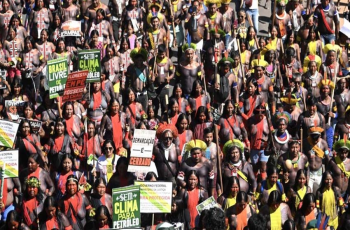
Indigenous people march in Brazil to demand land demarcation
2024-04-24 -
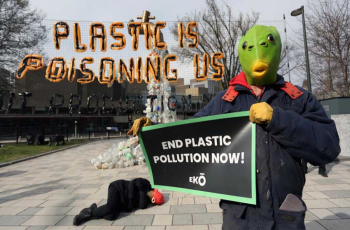
Talks on global plastic treaty begin in Canada
2024-04-24 -
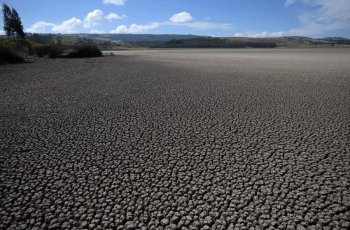
Colombian court recognizes environmental refugees
2024-04-24 -
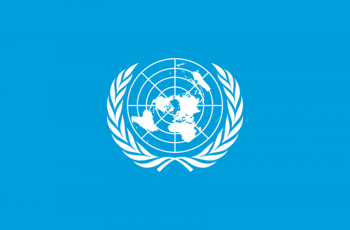
Asia hit hardest by climate and weather disasters last year, says UN
2024-04-23 -
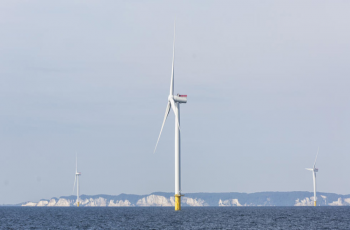
Denmark launches its biggest offshore wind farm tender
2024-04-22 -
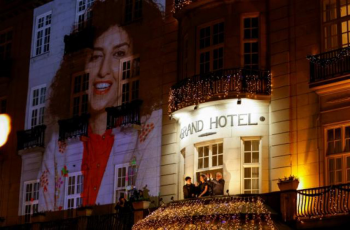
Nobel laureate urges Iranians to protest 'war against women'
2024-04-22 -
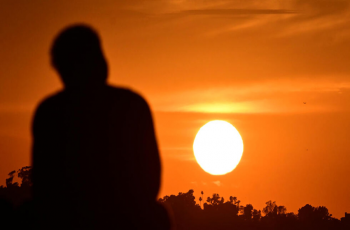
'Human-induced' climate change behind deadly Sahel heatwave: study
2024-04-21 -
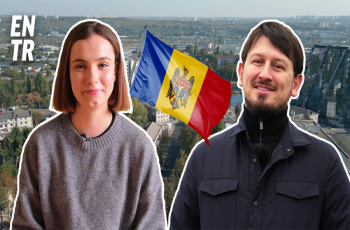
Moldovan youth is more than ready to join the EU
2024-04-18 -
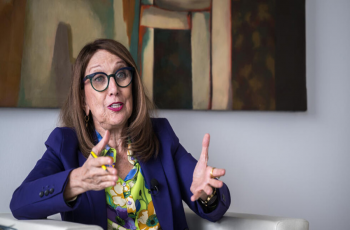
UN says solutions exist to rapidly ease debt burden of poor nations
2024-04-18 -
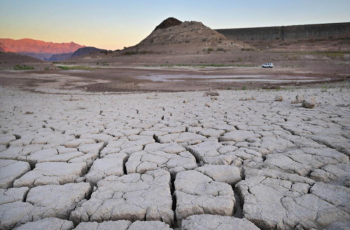
Climate impacts set to cut 2050 global GDP by nearly a fifth
2024-04-18
